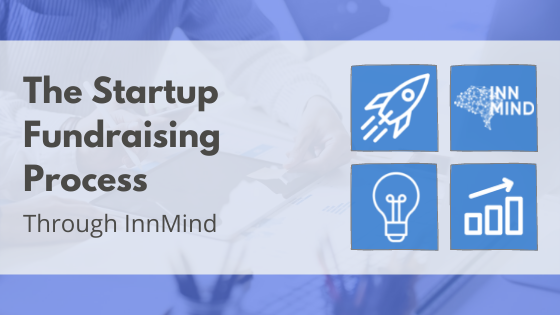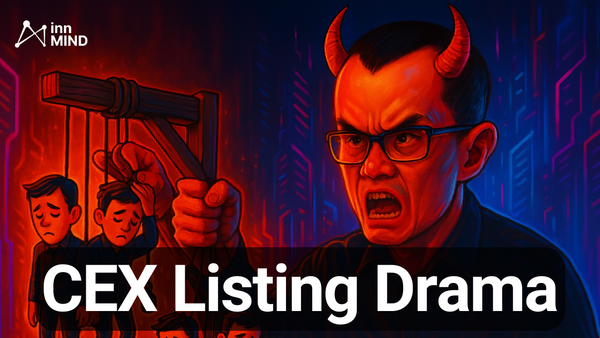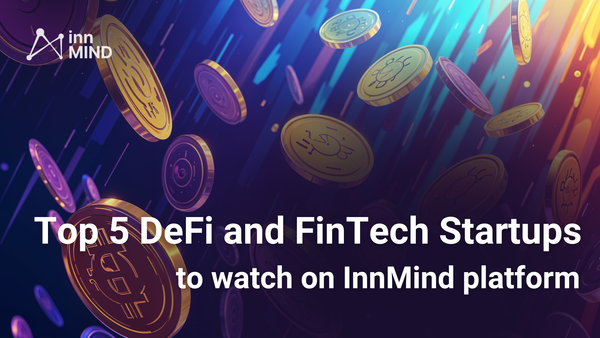Tokens, Crypto and Startups, Expert Opinion on Topics
All you need to know about how to run a crypto startup: ✅Tokenizing a startup: Where to start ✅ The relationship with the investors in crypto startups ✅Token, funding rounds and crypto strategies ✅The truth of running a startup

This post is the fruit of a detailed interview with On Yavin, angel investor and founder of Coinintelligence.
The information collected is a real gem for all the crypto startups’ founders and entrepreneurs, and for all who want to dig down into the tokenomics and crypto space.
You will understand what is tokenomics from the point of view of an expert investor in crypto who covered the 4 most important topics for crypto startups:
👉 Tokenizing a startup: Where to start [5 chapters]
👉 The relationship with the investors [9 chalpters]
👉 Token, funding rounds and crypto strategies [12 chapters]
👉 The truth of running a startup [3 chapters]

About On Yavin
On Yavin is a serial entrepreneur, lawyer, and angel investor.
Over the years he has established and built several successful companies, and invested in and mentored many others. In 2017, he joined the blockchain industry with the founding of Cointelligence. Since then, through Cointelligence he has provided the industry with valuable research and education. At the start of 2021 he launched Cointelligence Fund, a fund-of-funds dedicated to digital assets, where he serves as Managing Partner.
All chapters from the full interview
[PART 1]
✅ Tokenizing a startup: where to start
1. What is the main difference between the business model of a traditional startup and a tokenized one?
2. Tokenizing a startup: where to start?
3. The 3 important things to take into account when starting a crypto startup
4. How to deal with law in tokenized projects and find the best jurisdiction?
5. How to evaluate a tokenized startup?
[PART 2]
✅ Relationship with the investors
6. Who is the best investor for your startup?
7. How to spot scam investors?
8. How to distinguish between "dumpers" and smart investors?
9. Is approaching the top investors worthy?
10. What makes an investor decide to invest in a project?
11. What are the real interests and intentions of investors?
12. How to approach your own mistakes with investors?
13. How to manage changes after signing the deal with your investor?
14. Should Different conditions exist for early and late investors?
[PART 3]
✅ Tokens, funding rounds and crypto strategies
15. How should a startup determine the amount of fundings they need to raise?
16. How to establish the price of the tokens between different fundings rounds?
17. How to manage tokens release?
18. Are public rounds and tokens locks a good practice?
19. Public sales on pre-ideal sales, IDO and air drops: is it a good solution?
20. Cliff vesting: is it a good option?
21. Is DAO a good alternative?
22. The long path of crypto real success
23. Designing the tokens distributions
24. How should liquidity be calculated?
25. What is the logic behind liquidity?
26. When is paying for a centralized exchanges list worthy?
[PART 4]
✅ The truth of running a startup
27. What does running a startup look like?
28. How to manage team salary
29. A personal message from On Yavin to the future founders
👇 GET A TASTE OF THE FULL INTERVIEW 👇
💡What is important to take into account when starting a crypto startup?
Three things are absolutely important to take into consideration:
1. The benefit: Before anything else, I invite the founders to answer the following question: is it actually needed and relevant to tokenize your startup?
I shed light on it because I want to be sure that you're not going to it because of the hype and the popularity of this trend, but you considered the real benefit that this process could generate.
In case you are a CEO with no background on blockchain and cryptocurrency who still wants to explore that space, I think it is possible and acceptable, as long as you have with you a real expert that can guide you through it.
I stress the fact that this has to be a real expert because distinguishing great expertes from those who just pretend to be an expert could be difficult.
Make everything you can to assure that he is a great professional, and he’s advising you according to what is actually needed to be done, and not to his or her personal agenda.
To make a recurring example: sometimes advisors want to buy tokens to sell them as soon as possible. While they want to make money, they don’t care if the project fails or the company spends so much money to try to tokenize: these are not the advisors that you need.
2. The Law: When you consider tokenizing your project, make sure to don’t violate any laws. I will repeat it again and again: don’t ignore regulations and don’t act against the law. It’s essential to get a proper consultation from a legal advisor, and my suggestion is to consult more than one.
3. Tech knowledge: Tech is about infrastructure. It means that you have to be able to realize what you mean to do. Your project cannot be just fantasy. Of course, everything around a startup is about reaching and overcoming new limits, but we need to consider what actually is possible to realize in reality since these are the only projects where investors will invest in.
⚖️ How to deal with law in tokenized projects?
One thing is always essential: get consultation from legal advisors.
Everybody needs to consult with a legal advisor before they start operating. This sounds obvious but, to be honest, most of the crypto projects that I talked to did not get the proper legal consultation before they started.
In the same cases, bootstrap startups cannot afford expensive legal advice.
I completely understand it, so what to do in this case?
Tell your investors that you are investing the seed or pressing round at the moment and you’re not sure about the legal aspect yet, but as soon as you raise the initial funds, you will use some of them on proper legal advice.
A thing that I often see is that many crypto startups’ co-founders don’t even hire a lawyer for a SAFT -a Simple Agreement for Future Tokens, implicating that investors will get their tokens in the future after the token generation event happened, but instead they google and take the first thing they found without considering whether it’s relevant and suitable for them or not.
Is this good? Absolutely not. Always bear in mind that even if crypto is meant to be global, and subjected to no jurisdiction nor limit, this is not the case yet.
In this sense, co-founders have to consider the jurisdiction of the country they are based on and the one where the investors are based, and one rule does not apply for everyone. For this reason it is crucial to ask for consultation, and not just from one adviser -since, as a service provider, he’s interested in gaining more clients.
Moreover, it must be considered that one legal advisor is not always enough to advise for all of the jurisdictions or even more than one or two, because in many cases lawyers are able to advise based on the country they are based in and they cannot even advise outside of their jurisdiction. On top of that, the lawyer could try to sell their jurisdiction and the best for crypto startups: this could be true, or could be a way to gain a new client.
The last thing with regard to legal and tokens is the fact that things are changing all the time. Even if you got the advice yesterday, it doesn’t mean that it’s going to apply in a month, or in six months or in a year from now. So you need a proper legal advisor who will advise you regularly, including when there are changes across different jurisdictions and laws.
If, after reading this, you still have a strong, real use case for a token, don’t jump straight to a whitepaper.
First, build a sober economic model:
Use Tokenomics Calculator PRO to map out supply, investor allocations, unlocks and emissions and check how sustainable your token looks over 3–5 years before you promise anything to exchanges or your community.
👉 https://innmind.com/downloads/tokenomics-calculator-pro/
🤝 How to spot bad investors?
It seems obvious, but not always it happens: make as much research on the person as possible. I will give you two practical techniques that everyone can apply now.
How Fake Investors Trick Money Out Of Startup - 5 Tips To Know
🚩1) Google the name
It’s unbelievable how powerful Google is, and how underrated it is while researching about the reputation, the past and information about a person.
The very first thing you should do is Google the name of the investor and read as much as possible about him: review the first 10 pages on Google, and don’t stop at the first result. Why? Because many people, especially if rich, can hire someone to push down the negative results about them appearing on Google.
In any case, this research it’s also benefician not just to find red flags, but to have a much fruitful conversation with that company, or that inversor. It is a sign of respect that is appreciated and positively evaluated.
🚩 2) Ask for recommendations
My second suggestion is: like for anything, ask for recommendations.
I know it might sound crazy because the last thing you want to do is to upset your potential investor and lower your chance to get funds, but it’s exactly like everything else: you need feedback in order to build your trust. Ask to talk to people that their investors worked with. Ask other co-founders about their personal relationship with them. And ask not for only one name, because everyone can easily find one or two people to recommend you. When you do talk to these co-founders, always ask about the personal relationship between them, because you will surprisingly find that in many cases that you're talking with a relative, a dear friend of that investor. Sometimes, it also happens that advisors get the percentage from the deal from investors. Especially if they’re saying that they helped so much in the past, and they cannot provide any recommendations, this is already a clear red flag.
In some cases you can also see public recommendations. Everybody knows that LinkedIn recommendation is a common practice, so when you check the bottom of the LinkedIn profile of an investor, bear in mind the recommendation-trading habit, and stay away from those suggestions, and instead look for genuine, organic and solid recommendations.
Read other popular posts from our startup blog:









